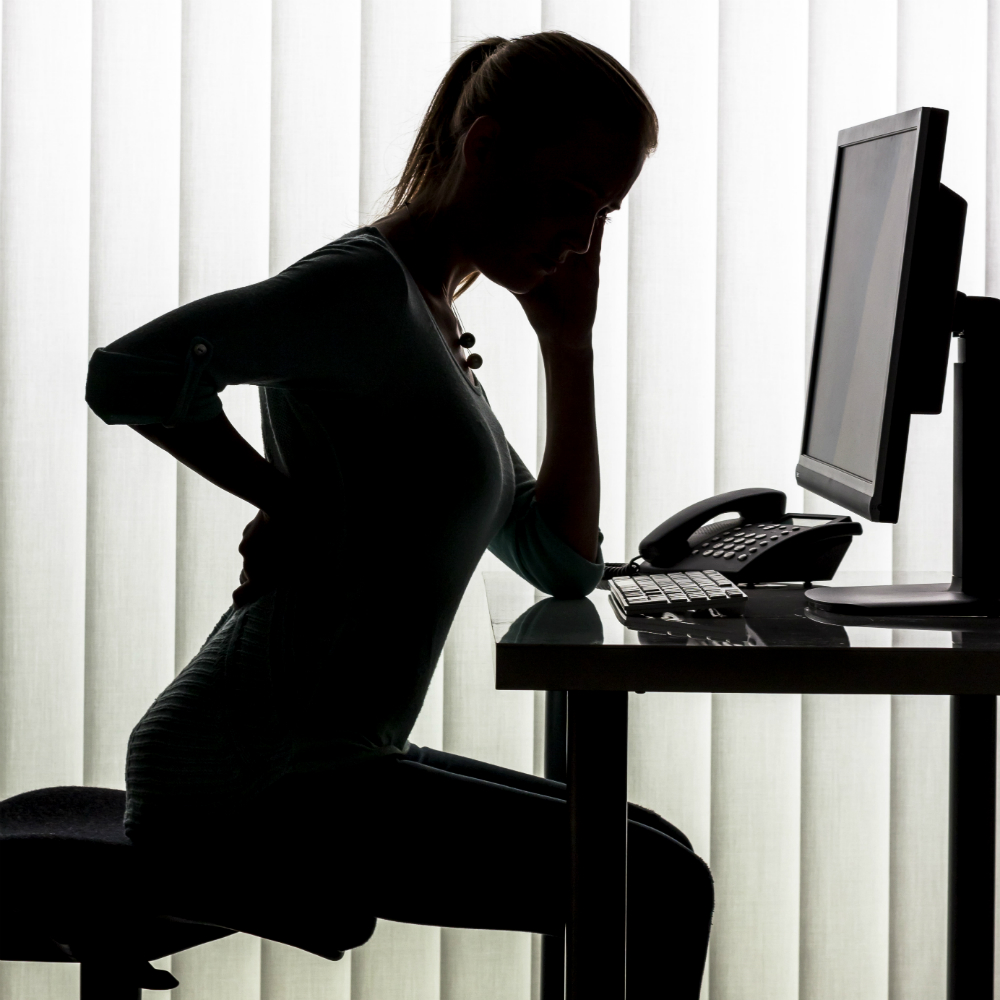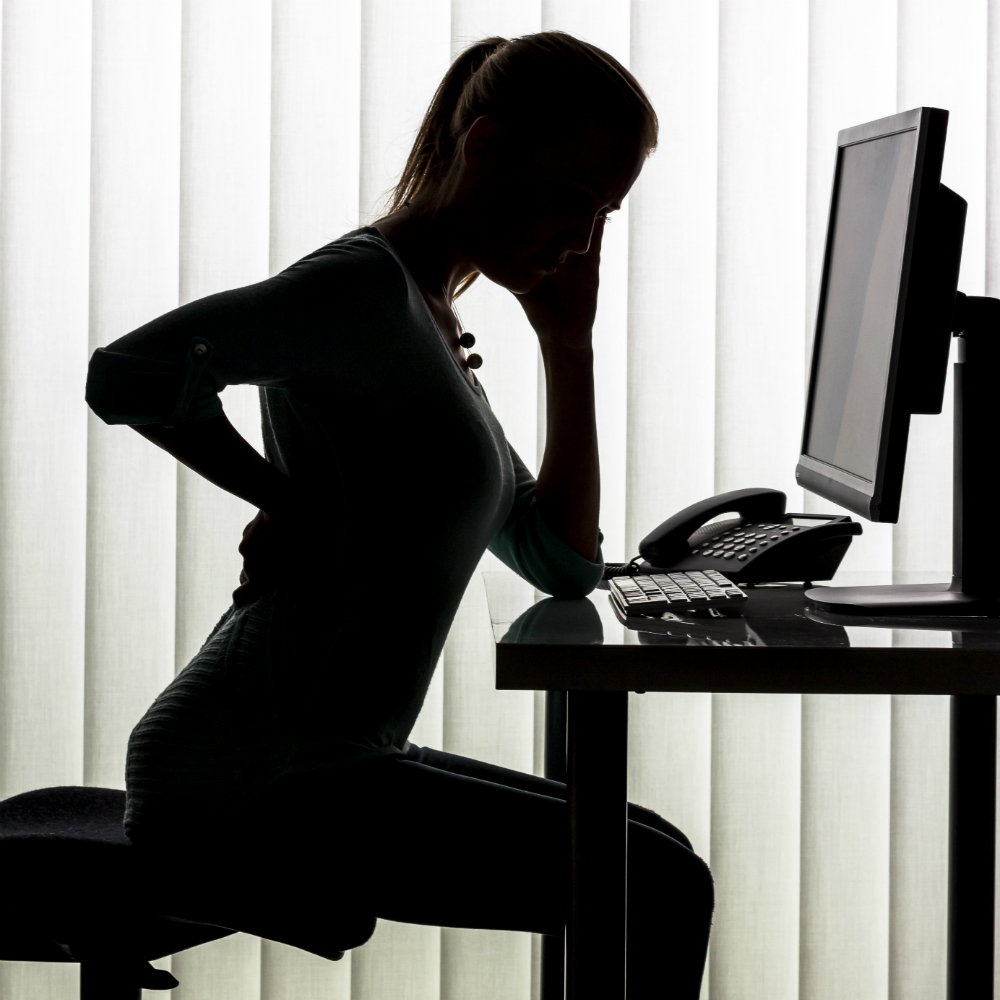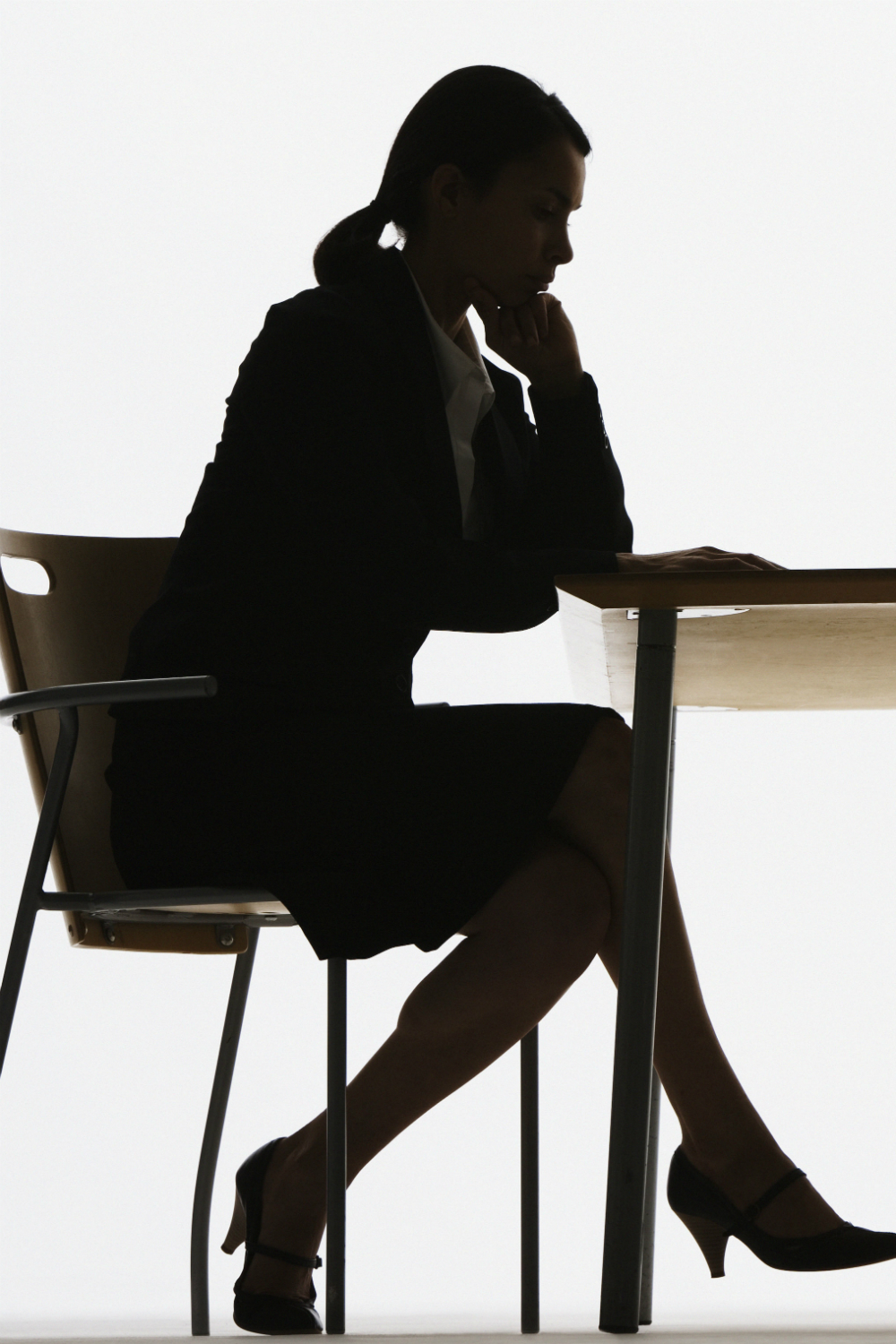Are Our Periods Jeopardising Our Careers? (And What Does It Mean If They Are?)
In certain areas of Asia, women can take two days off work every month because of their periods. And as research shows we're calling in sick due to PMS more than ever, should we be following suit?

In certain areas of Asia, women can take two days off work every month because of their periods. And as research shows we're calling in sick due to PMS more than ever, should we be following suit?

'Hi there *coughs*, I'm really sorry *coughs* *coughs again* but *cough* I *cough* can't *cough* make it in *cough* *cough* today. I have *cough* food poisoning. *cough* *cough* *cough*. *Cough*'
We've all been there. Whether you're hungover (or still drunk), emotional, tired or just a bit busy going on holiday, every one of us has called in sick at some point in their working life.
But have you ever called in sick because of your period?
According to new research by Cleanmarine, millions of us have. Or, more specifically, 17 million sick days are taken by women because of severe menstrual pain and / or PMS every year. We're just going to type that one more time: 17 million.
Of course, this isn't a problem that's restricted to Britain. But many other countries have adapted to the problem accordingly. In Japan, women have been allowed official 'menstrual leave' every month since WWII, when women were entering the work force in record numbers, and it was intended as a symbol for women’s emancipation. 'It represented their ability to speak openly about their bodies, and to gain social recognition for their role as workers,' explains social researcher Alice J Dan. Meanwhile, South Korea implemented menstrual leave in 2001, and Taiwan jumped on the bandwagon even more recently than that, in 2013.
Unfortunately, it's not as straightforward as just following their lead: British women are already held back in their careers by maternity leave (extensive research has revealed that taking a year out of the work place can affect our long term salary and promotion prospects). And while new laws enabling fathers to take paternity leave should eventually help to balance that out, we've yet to develop the technology to let men share the burden of our periods (as amazing as that would be). Leading some experts to suggest that taking two days out of the office every month could hold us back even further. And while we could argue that a) that's not OK, and b) calling in sick is likely to already be holding us back in our careers, the assumption that all women are always going to be unable to work during their periods is a huge generalisation, and only promotes the idea that we're the weaker, less competent sex.
Marie Claire Newsletter
Celebrity news, beauty, fashion advice, and fascinating features, delivered straight to your inbox!
Plus, one of the reasons why countries in Asia have implemented menstrual leave is because there aren't always appropriate working conditions for women who are on their periods, which isn't something that affects us. And another reason is because of a cultural belief that women will struggle to get pregnant later on in life unless they rest while menstruating - even though there's no scientific evidence to support that hypothesis.

But that still doesn't solve the problem of the UK's 17 million sick days. And for the 20 per cent of women who do suffer from crippling pains every month - to the extent whereby they faint on the street or find it physically impossible to get out of bed, the current approach clearly isn't working.
'I haven't called in sick for a few years now, but when I was younger - and before I was on the pill - I would be doubled over in pain ever month, so I'd just ring my boss and say I had a stomach ache,' says charity worker Jenny, 29. 'I tried to tell him once that I was feeling faint, and he did send me home, but I could tell he thought I was exaggerating. So I never did it again.'
And Sarah's experiences are similar. 'As a teenager, I had chronic period pains,' she explains. 'I was taking a couple of days a month off school, throwing up and eventually ended up on prescription painkillers. I had a part time job in retail, and on one occasion I remember feeling too ill to work, so I told them that I had severe PMT - only to be told (by a female staff member) to take some painkillers and get into work. That day I was even told I had to stay late on so someone else could go home ill (frustratingly, with a hangover). I definitely did not feel at all fit to work, especially to be on my feet for six hours, but I didn't feel confident enough to argue my case. Since then, I have had to call in sick because of my periods on numerous occasions - but I have always given another reason, such as a stomach bug. Luckily, it doesn't affect me nearly as regularly as it used to, but when it does, it's so severe that I have to call in sick. But even though I'm 23 - and I know that it's not just me - I don't feel as though I'd be taken seriously if I rang into work with that reason.'
'I've always struggled with terrible periods that made me feel physically - and violently sick,' adds social media manager Rose, 27. 'But I always forced myself to go into work because I didn't want people to think I was making a fuss about nothing. So I'd sit at my desk, wriggling uncomfortably and feeling utterly miserable. Then I changed jobs, and my female boss noticed that I was having a hard time. She said she had bad periods too, and suggested that I worked from home on the first day of my menstrual cycle. That was perfect - after all, I could still function, and I still wanted to do my work - but I needed the flexibility to do it while lying down on the sofa, clutching a hot water bottle.'
And flexibility seems to be the solution. After all, if women know that they won't be penalised - or judged - for adapting their working schedules according to their individual needs, then we'll be able to stop phoning in sick - and start working to the best of our abilities.
*cough* *cough*
The leading destination for fashion, beauty, shopping and finger-on-the-pulse views on the latest issues. Marie Claire's travel content helps you delight in discovering new destinations around the globe, offering a unique – and sometimes unchartered – travel experience. From new hotel openings to the destinations tipped to take over our travel calendars, this iconic name has it covered.